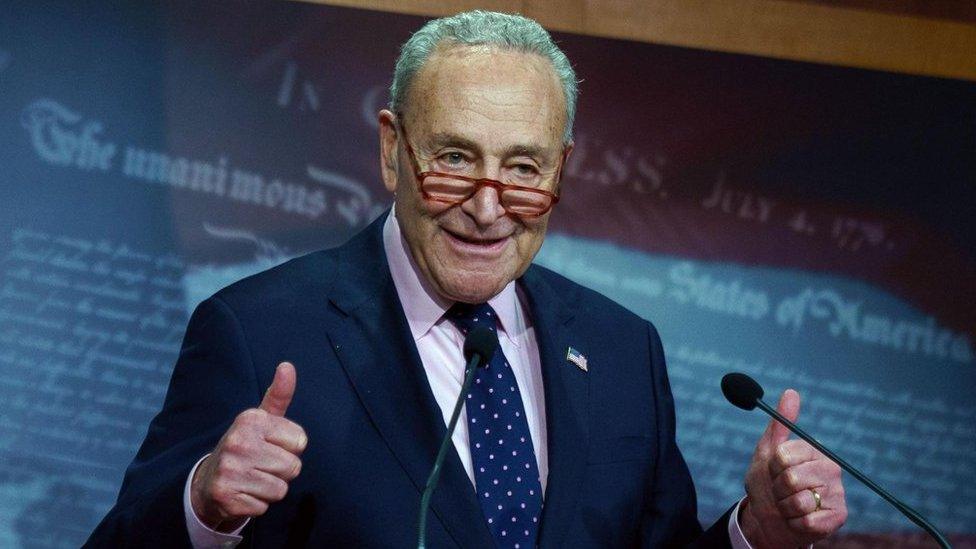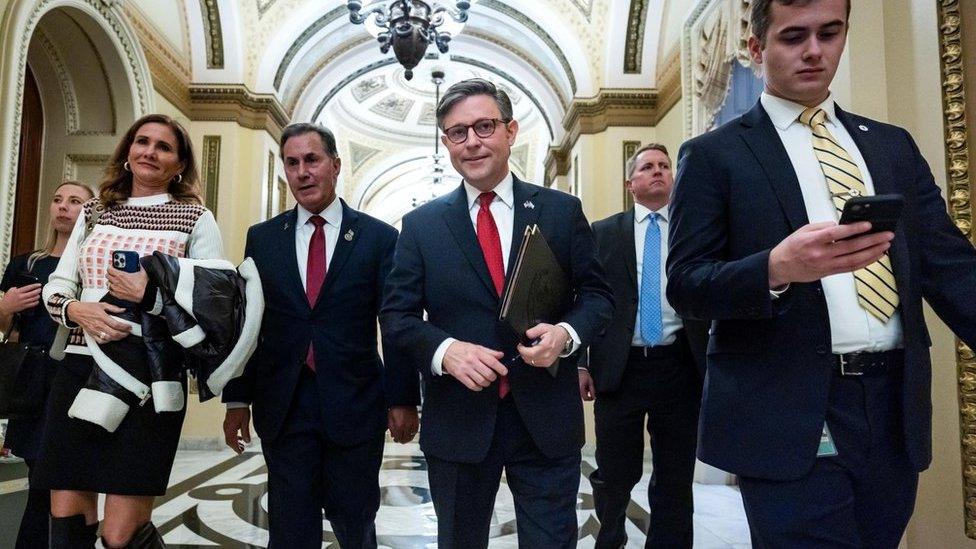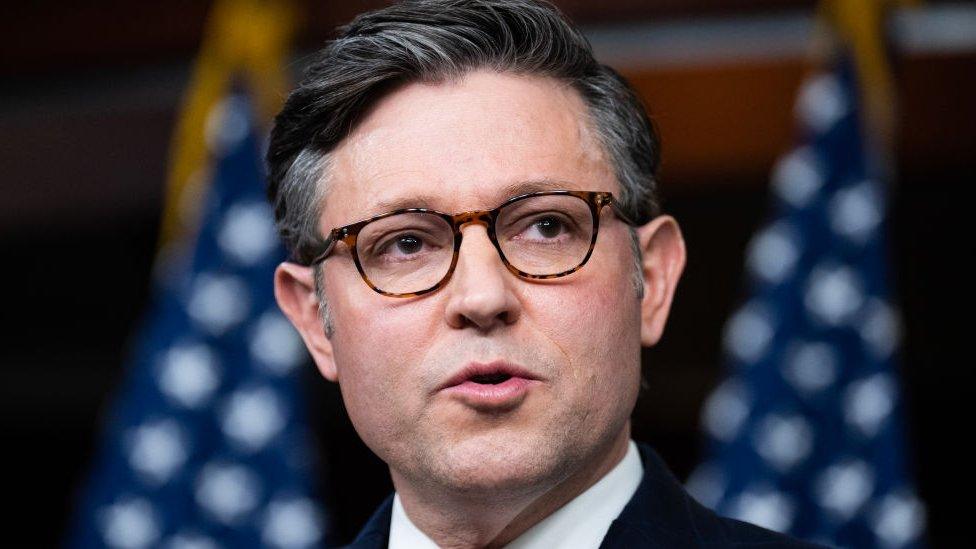US Congress averts government shutdown threat with stopgap bill
- Published

Chuck Schumer, Senate majority leader, appeared relieved after Congress averted a government shutdown
Congress has passed a temporary funding measure that will keep federal agencies operating until the new year, days before the US faced a government shutdown.
The Senate passed the stopgap bill by a vote of 87-11 on Wednesday night after the House passed it earlier this week.
President Joe Biden is expected to sign the bill before the Friday deadline.
This is the second time this year Republican dissension has brought government to the brink of shutdown.
Senate Majority Leader Chuck Schumer, a Democrat, celebrated after the vote, saying that "this Friday night there will be no government shutdown".
"Because of bipartisan cooperation, we are keeping the government open without any poison pills or harmful cuts to vital programmes - a great outcome for the American people," he said.
Congress does not have much time to act, however, and there remains intense divisions on Capitol Hill.
The bill extends funding until 19 January for priorities that include the Department of Energy, military construction, veterans' affairs, transportation and housing. Other items not covered by the first step are funded until 2 February.
Despite President Joe Biden's $106bn (£85bn) national security funding request that includes money for Israel, Ukraine and the southern border, Congress's proposal did not include additional aid for any of those items.
Partisan infighting within the Republican conference, which controls the House of Representatives, has paralysed Congress for months.
A group of hard-line fiscal conservatives, known as the House Freedom Caucus, want major concessions that would slash government programmes.

Passing a temporary funding bill proved to be Speaker Mike Johnson's first serious hurdle as the new Republican leader.
Not all in the party agrees with that view, which led to a congressional leadership crisis. Former Speaker Kevin McCarthy was ousted from his post in October for striking a deal with Democrats over a similar short-term funding package.
Republicans handed the Speaker's gavel and a looming shutdown crisis to little-known Louisiana Republican Mike Johnson.
In an attempt to please the Freedom Caucus, Mr Johnson split the financial deadlines to force Congress to negotiate federal funding in a more piecemeal fashion.
He will likely face a fiercer fight when members of Congress begin negotiations on a 2024 spending agreement. Congress's plan for funding for Ukraine, Israel and other national security priorities is unclear.
"We've had enough," Scott Perry, the chair of the Freedom Caucus, told reporters on Wednesday. "We're sending a shot across the bow."
Related topics
- Published15 November 2023

- Published14 November 2023
